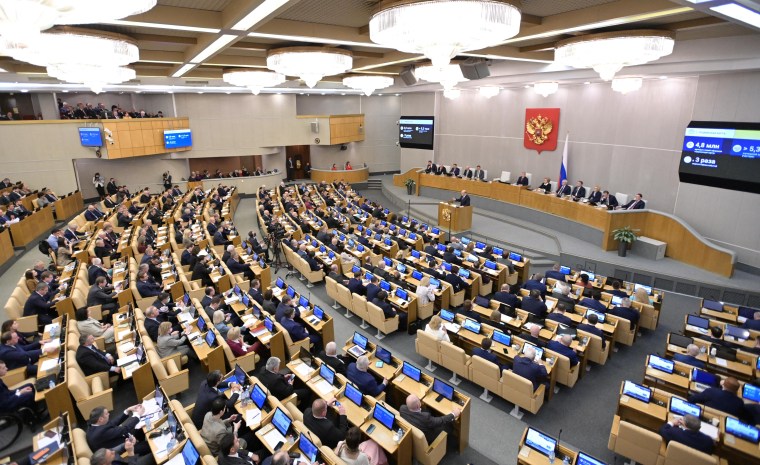Paris, June 28, 2022 — Russian legislators should not pass a new bill to expand the country’s regulations concerning so-called “foreign agents,” and should let the press operate freely, the Committee to Protect Journalists said Tuesday.
The country’s current foreign agent legislation requires the Ministry of Justice to prove that a person or organization has received foreign funding before it can include them on one of four lists.
A new bill under consideration in the State Duma, the lower house of Russia’s legislature, would consolidate those lists into one registry and remove the burden of proof from the ministry, according to the text of the bill, published on the Duma’s website, and news reports. The proposed law says anyone who “has received support and/or is otherwise under foreign influence” and whose work is widely disseminated or involves politics or the military would be labeled as a foreign agent.
The bill passed its second reading in the Duma on Tuesday, June 28, according to those reports; a further reading is scheduled for Wednesday, after which it can pass to the upper house of the legislature and then to President Vladimir Putin for approval.
“Russia’s foreign agent law is already one of the government’s favored tools to harass and restrict the press; instead of passing new bills that make it easier to label a journalist as a foreign agent, authorities should pare back the existing law to ensure that the media can work freely,” said Carlos Martinez de la Serna, CPJ’s program director, in New York. “Journalists cannot do their jobs if they are under a constant barrage of politically motivated and vague regulations.”
The draft legislation requires those added to the foreign agents register to report foreign sources of funding and the amount of funds received, and disclose their bank accounts. The bill empowers the Ministry of Justice to request Roskomnadzor, Russia’s state media regulator, to restrict access to websites that fail to comply with those requirements or those of the current legislation, which also mandates that foreign agents regularly submit detailed reports of their activities and expenses to the government.
The Russian criminal code carries five-year prison terms for noncompliance with the foreign agent requirements; the draft legislation does not include any changes to that penalty.
The bill also proposes to create a single registry of people “affiliated” with foreign agents, including current or former employees of media outlets that are designated as foreign agents. It does not specify what, if any, the legal obligations would be of those added to the “affiliated” list, but says they are not subject to same requirements as those listed on the foreign agents register.
On June 14, the European Court of Human Rights ruled that Russia’s current foreign agents legislation violated the European Convention on Human Rights.
On June 27, Maria Borzunova, a journalist with the independent TV station Dozhd, was labeled as a foreign agent after she received money transfers from a Belarusian and an American friend as repayments for coffee and meals, according to news reports and a Telegram post by the journalist.
CPJ emailed the State Duma for comment but did not receive any reply.
